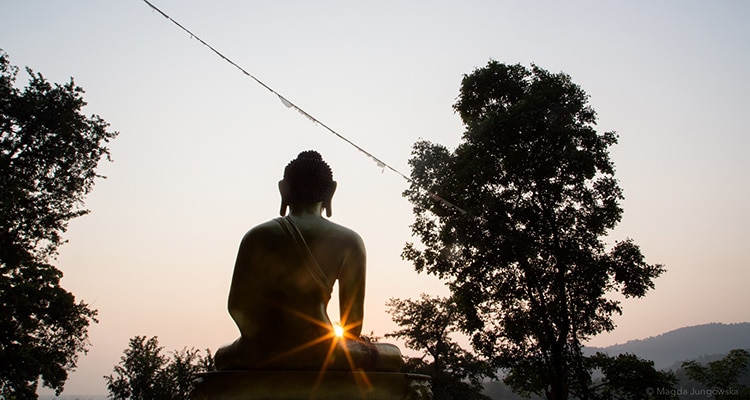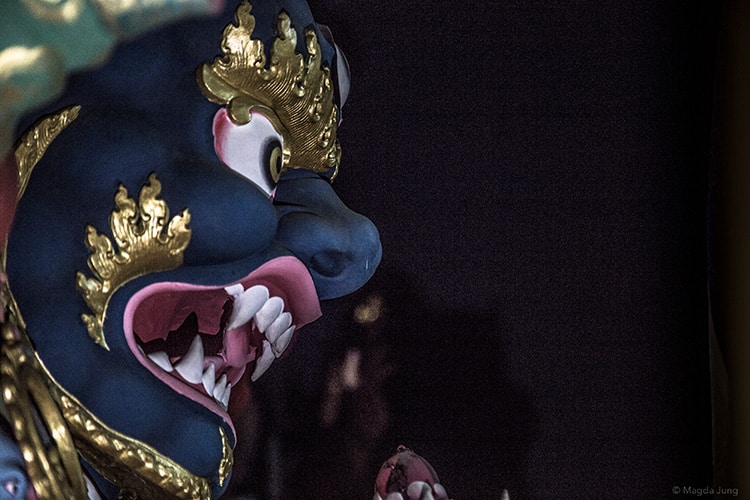What Should I Do After I Meditate?
Category: Beginners Guide to Meditation | How to Meditate | Recent Meditation Posts

How You Might Feel After Meditating (Natural Signs of Deep Meditation)
Soon after meditation, we may feel calmer, clearer, and more stable-minded. But as the saying goes, we don’t meditate to get better at meditation, we meditate to get better at life. How we close our meditation sessions, and what we do after meditation, can help us turn a meditative state of mind into a lasting trait.
Research studies examining the brain before and after meditation have found that even a single session can result in neurobiological changes. These changes include heightened states of mindfulness, improved mood, improved cognitive function and lower blood pressure. Meditators also report feeling more clear-headed, calm, compassionate or loving after they have meditated.
The after-effects of meditation, however, aren’t limited to feel-good sensations. Post-meditation feelings can include agitation, uncertainty, discomfort and unrest. This doesn’t mean you’re doing it wrong. These uncomfortable feelings are part of being human, and are gateways for learning.
It helps to remember we don’t meditate to feel any one certain way, but to practice feeling what we feel. If we can acknowledge and allow for what’s unpleasant in the same manner we accept what’s pleasant, that’s great!
The objective is not to shoot for post-meditation bliss, but to more deeply connect to the truth of the present moment. The paradox is, as we get more practiced at allowing for what is present, including discomfort, resistance reduces and experiences of well-being increase.
Closing Your Meditation Practice
What to do after meditation begins with how we close our session. Studies show that bringing awareness to the benefits we receive from meditation enhances those benefits. So, as you close your meditation session, take a moment to consider, ‘How does your body feel after meditation?’
Acknowledge and celebrate one or more of the benefits you’ve received. Staying present despite discomfort, returning to presence after distraction, feeling alert, feeling relaxed, acknowledging an unwelcome emotion, receiving a profound insight, or addressing pain with self-compassion are examples of what you might celebrate.
Beyond acknowledging and celebrating, sharing the benefits we’ve received with others further crystalizes these new feelings and behaviors. We can dedicate our benefits to another, or to all beings everywhere. Sharing might include making a formal commitment to carry these benefits into the rest of our day.
For example, if we feel calmer after our meditation, we might dedicate this by wishing all beings everywhere the same opportunity to practice and to feel such calm. Before leaving our cushion, we can spend time contemplating what it might look like to sustain this calm during our day and in our interactions with others. This is how we start the process of becoming more aware of the transitional space between our meditation sessions.
What To Do After Meditation
In between meditation sessions, we have an opportunity to create the causes and conditions that will help us experience even greater benefit in our next session.
Meditation is just one part of a 3-fold path which includes ethics and wisdom. To get the most from our meditation practice, we thus acknowledge and carry forward any wisdom gained as best we can. We also practice protecting the mind and living ethically outside of our meditation sessions.
Another 3-fold process, the three tools of developing wisdom, includes listening, contemplating and meditation. Between our meditation sessions, we can listen to Buddhist teachings and spend time contemplating their meaning.
What to do after meditation is sometimes put into perspective by contemplating, ‘What should we not do after meditation?’ Thinking, speaking or acting in ways that harm can negatively impact our meditation practice. It may even prevent us from returning to meditation at all.
Things to avoid include the 10 non-virtuous actions. If we’ve taken vows or made a commitment to the 5 precepts, it’s important to maintain those commitments as well.
The more often we meditate, the more likely we are to behave kindly, carrying insights from our practice long into the day. On the flip side, monitoring our thoughts, speech and actions outside of meditation helps lay the foundation for a fruitful practice.






